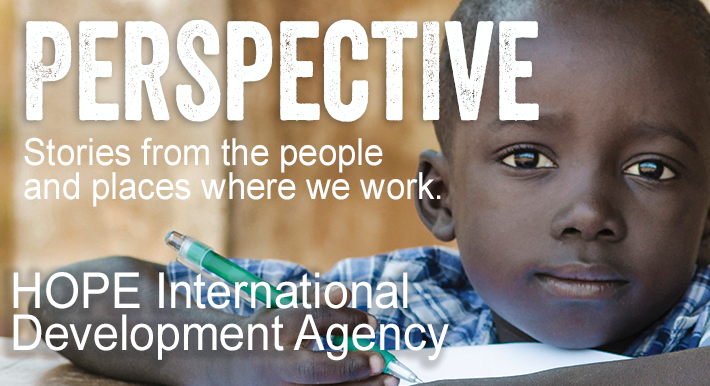The Globe and Mail has published an excellent article about
dealing with famine before it becomes a catastrophe, and about UNICEF’s efforts, in particular (although make no mistake — plenty of other organizations, HOPE International Development Agency included, try to take preemptive action against famine).
The editorial is thoughtful. It’s helpful to let people know how hard aid organizations work to address a crisis like that brewing in the Sahel region of Africa right now, before they become media spectacles. Unfortunately, it is the media spectacle that inevitably provokes the greatest response from concerned donors.
As eye-opening as the article is, the reader comments below are far more revelatory. Although one must always remember that the comments section of most online publications are the natural habitat of people who are spoiling for a fight, eager to express their polarizing views with convenient anonymity, they are still worth a read. That is, if you are someone who cares for the poorest of the poor and tries to create the conditions on this planet that would give them something that almost approaches a fair shake in life.
It is beyond the scope of this blog to address the extremely complicated feelings that Westerners habour towards Africans. But it’s fair to say that there is a tenor of extreme disgust and impatience towards the perceived ‘failures’ of this continent, economically, politically, and otherwise. This impatience makes rallying support for intelligent investments into the abilities of poor African families to become self-reliant (something we try to do) quite the uphill battle.
If you are like many of the commentators of this article and you believe that sending aid to famine-afflicted starving people directly causes problems like overpopulation, you have a perfect excuse not to care very much at all whether the next batch of miserable African victims die off or not. Not caring is being part of the solution, rather than the problem! One wonders at the thought process which leads the very intelligent-sounding ‘Dieter HH’ to state that aid organizations
“may in fact have made the situation much worse by encouraging irresponsible and unsustainable population increases ( y factors of 3X to 4X ) in what is/was under the best of circumstances a marginal and unforgiving eco system.”What does he picture in his mind’s eye? That presumably once she’s watched her child with toonie-sized biceps ingest a rehydration packet, the typical African mother immediately makes plans to give birth to many more children, seeing as the experience of depending on emergency aid has relieved her of much of the stress of figuring out how to keep body and soul together? Maybe African mothers and fathers are sort of like entitled teenagers and they have children just to test the patience of Western donors?
We say this: beware of the type of logic that encourages hardness of heart. Beware of the thoughts that conveniently allow you to forgo even the most modest shows of generosity. Consider carefully what commentator ‘KateCanadian’ has to say:
“The responses to this article so far are not responses to human beings in trouble. They sound like the callous English landlords who sneered at the Irish in the midst of the potato famine. The 8-year-old child whose brain is being clouded and body twisted by lack of protein and vitamins -- the child does not know that thirty years ago relief funds were stolen by strongmen who died before they were born. The child is living now, today, and needs help in a situation created by adults.”

